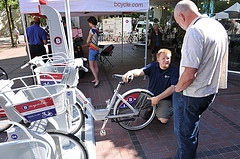When Portland last hosted a bike share demonstration, the concept was still just a twinkle in PBOT’s eye. But now with a green light to accept $2 million in federal seed funding, a similar demonstration held today in downtown Portland put the idea in a much different light.
Now, instead of wondering if bike-sharing will come to Portland, it’s a matter of getting it right when it gets here.
To inform the selection of a bike-share vendor, garner media attention, and to whet the appetite of potential users of the service, the Bicycle Transportation Alliance (BTA) hosted a demo of bike-sharing systems in downtown Portland today. Two of the most popular systems in the world — B-cycle and Bixi — were on display and open for testing.
B-cycle is a collaboration between Trek, Humana Corporation, and PR firm Crispin, Porter + Bogusky. B-cycle is currently in use in 11 U.S. cities including Madison, Denver, Boulder, and Chicago. Bixi was developed by the municipal parking authority of Montreal and is in use in cities around the world. Bixi has been licensed in the U.S. by Portland-based Alta Bicycle Share.
Both systems boast easy and quick rentals with credit card access, integrated RFID technology to track trips and prevent theft, and other latest-generation bells and whistles. B-cycle had a much more impressive display at the demo today, bringing along a fully operational kiosk and docking station.
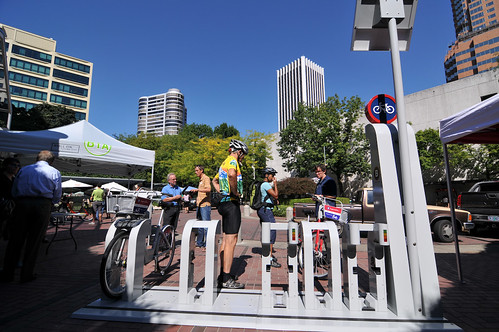
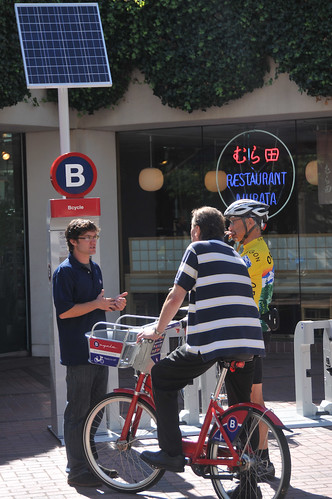
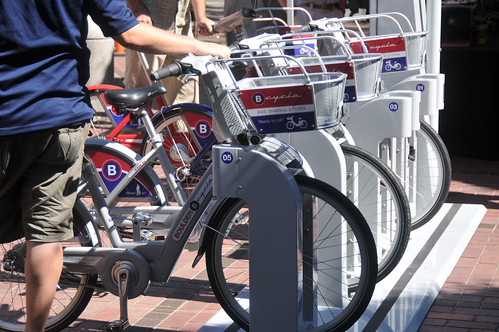
I rode both bikes and preferred the Bixi. The B-cycle was capable and worked fine, I just found the ride of the Bixi a bit more predictable and smooth. The B-cycle has a large front rack that not only makes the front end a bit twitchy/floppy (a few other test riders shared the same feeling), but it also inhibits the rider’s view of the front wheel, which can be a bit strange at first.
Here are more shots of the B-cycle…
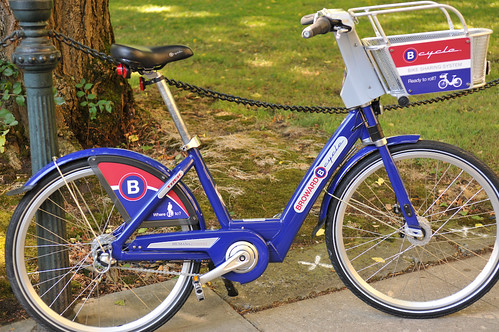
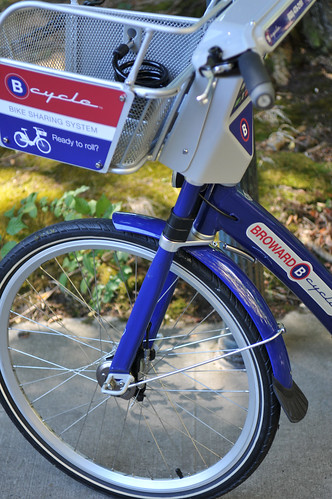
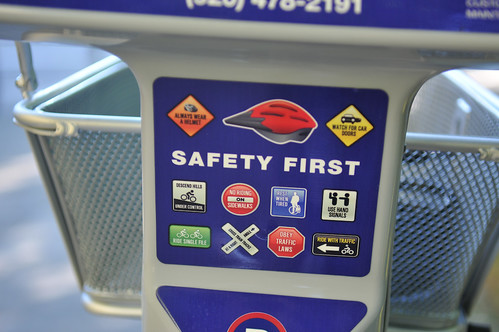
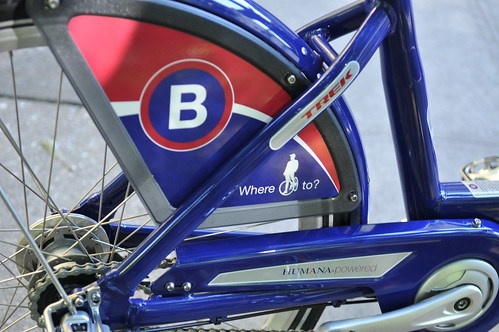
While the B-cycle is essentially a standard city bike with some modifications, the Bixi was clearly built from the ground-up to be the ultimate bike-share machine. With a more proprietary design, it looks more modern and futuristic than the relatively staid B-cycle.
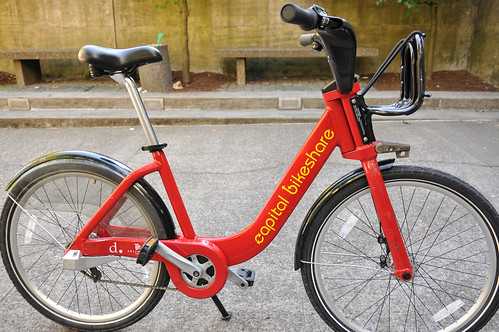
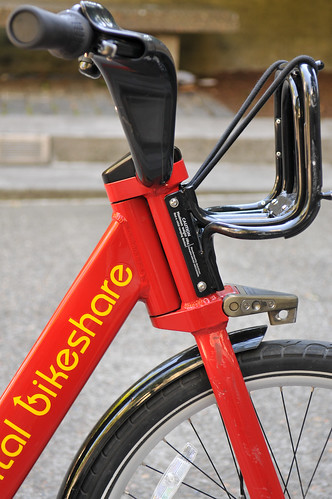
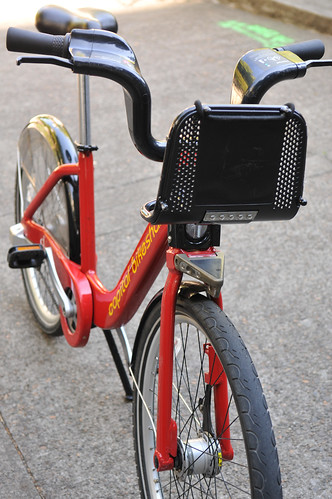
In the end I was left with the feeling that either of these bikes would excel on Portland’s downtown streets. Both have a way to carry a small bag or other cargo in a front rack, both have three-speeds with a wide enough gear range to handle downtown’s hills, and both have very sturdy, weather-proof construction.
Beyond the design and features of the bikes, the bigger question for Portland is whether or not such a system would be popular. If the conversations I overhead are any indication, bike-share will be a big success here.
“I like riding bikes,” said one well-dressed professional prior to a test ride, “but I don’t want to own one. It just seems like such a hassle.”
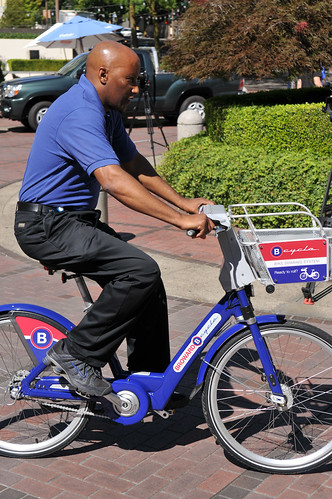
“I heard about this in the newspaper,” said another man on his lunch break, “and it sounded cool. I live in Gresham and would never think about riding all the way into town. But this… yeah.”
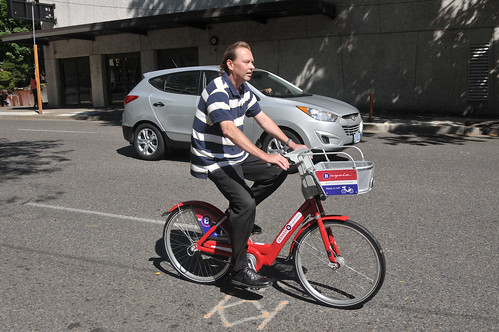
A rep from Regence Blue Cross/Blue Shield I spoke with said he’d use it for short errands across town. Regence has already expressed interest in being a title sponsor of the system. Spokesperson Scott Burton said they see it as a perfect investment. For them, he said, support of bike sharing is a cost-control mechanism and an investment in preventative care. More active people mean lower overall health care costs, which mean lower premiums for Regence members.
With half the $4 million in seed funding needed to start bike share in Portland already in the bank, the next thing is to wait for PBOT’s official Request for Proposals. The RFP — which both B-cycle and Alta Bicycle Share are sure to respond to — will give many more details about what type of system Portland is looking for, how they’ll pay for it, and what they’ll be looking for in a vendor.
— Read more coverage of today’s bike share demo from The Oregonian.
